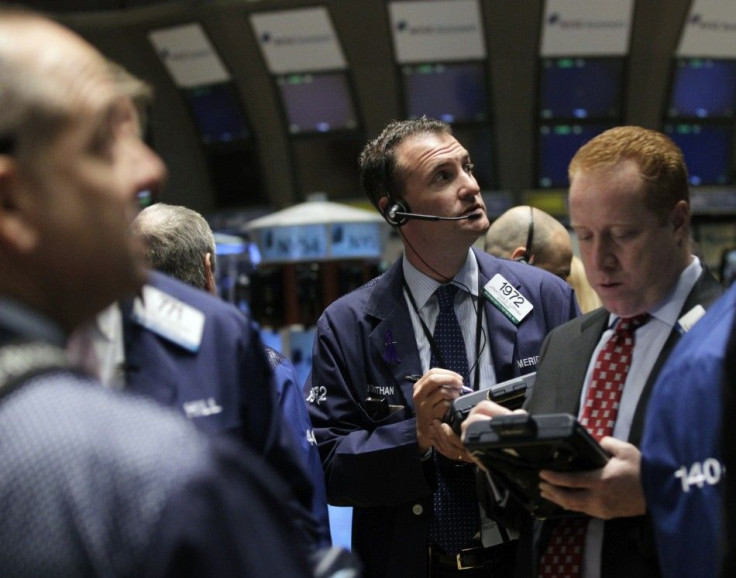Bank Strategists: Put Your Money in Good Companies, and Leave It Be
Investment Advisors Seemingly Going Back to Most Basic of Strategies As Market Volatility Refuses to Subside

Study hard. Eat your vegetables. Say your prayers. Buy Johnson and Johnson.
As asset managers of all sizes and risk appetites seem to keep getting thrashed by the twin maelstroms of high volatility and off-the-charts correlation among different asset classes -- something that has been dubbed the "risk-on/risk-off environment" -- it seems market strategists are advising clients to go back to one of the most basic and conservative of all investment strategies: buy stock in good companies, and leave it be.
"There are opportunities for dividend income from value-rich global franchises and selective corporate bonds," Jeff Munroe, the chief investment officer at Newton, a London-based asset manager claiming £43.4 billion ($67.81) in assets under management, said in a press release Monday. Newton is a subsidiary of Bank of New York Mellon [NYSE:BK].
That followed comments released last Wednesday by Rich Gordon, a fixed-income strategist for Wells Fargo & Company (NYSE:WFC), who extolled the advantages of high-dividend blue chips over other potential investments.
"We continue to think that over a multi-year timeframe, it's very likely that a well-constructed basket of high quality, dividend-paying stocks, will outperform any portfolio of Treasuries, no matter how it's constructed," Gordon said, in a video posted by financial blog Wall Street Media.
Investing in the high-dividend yielding stocks of mature, established companies like Johnson and Johnson (NYSE:JNJ) or McDonald's Corporation (NYSE:MCD) is a tried-and-true technique of portfolio managers. But as these companies tend to lag behind the momentum of the wider market, it is considered a conservative strategy that gives up potential profits in exchange for reduced risk.
As the market has gyrated wildly since late July, it seems more and more asset managers are counseling clients to accept such a trade-off. Rene Casis, a portfolio manager for iShares, which publishes and maintains closed-end funds traded on the New York Stock Exchange, recently told Structured Products magazine she was seeing "considerable inflows" into high-dividend funds.
In other words, as many U.S. equity investors were pulling tens of billions of dollars out of the wider market, at least some of that money was going to buy into high-dividend stocks.
"In a declining and volatile equity market, these have higher weights in defensive sectors such as consumer staples, healthcare and utilities," Casis told the magazine. "It caters to investors who want equity exposure with a flight to quality." iShares is owned by large asset manager BlackRock [NYSE:BLK].
Another manager of exchange-traded funds also told the magazine investors were fleeing to this type of asset.
"With current yields in the US, investors are looking outside of just money markets and bond funds... and a lot of the answers are coming in the form of equity dividends," Sandra Motusesky, of New Jersey-based Pershing Securities was cited as saying in a December 12 article.
Those putting their cash in this strategy have already been handsomely rewarded.
Since July 22, when U.S. equity markets hit their last peak before collapsing in an early August correction, the wide S&P 500 Index is down 8.5 percent. The Dow Jones High Yield Select 10 Index, which tracks the ten highest-dividend yield issues within the wider Dow Jones Industrial Average, is only down 3.42 percent, by comparison. Besides the two above-mentioned issues, stocks of companies such as Intel (NASDAQ:INTC), Kraft Foods (NYSE:KFT), Pfizer (NYSE:PFE), Phillip Morris International (NYSE:PM) and The Home Depot (NYSE:HD) have all outperformed the wider market.
In a topsy-turvy world of hourly stock-market pirouettes, daily sovereign downgrades, weekly bank bailout, and monthly macro-economic implosions, who knew stability could be the new hotness?
© Copyright IBTimes 2024. All rights reserved.





















